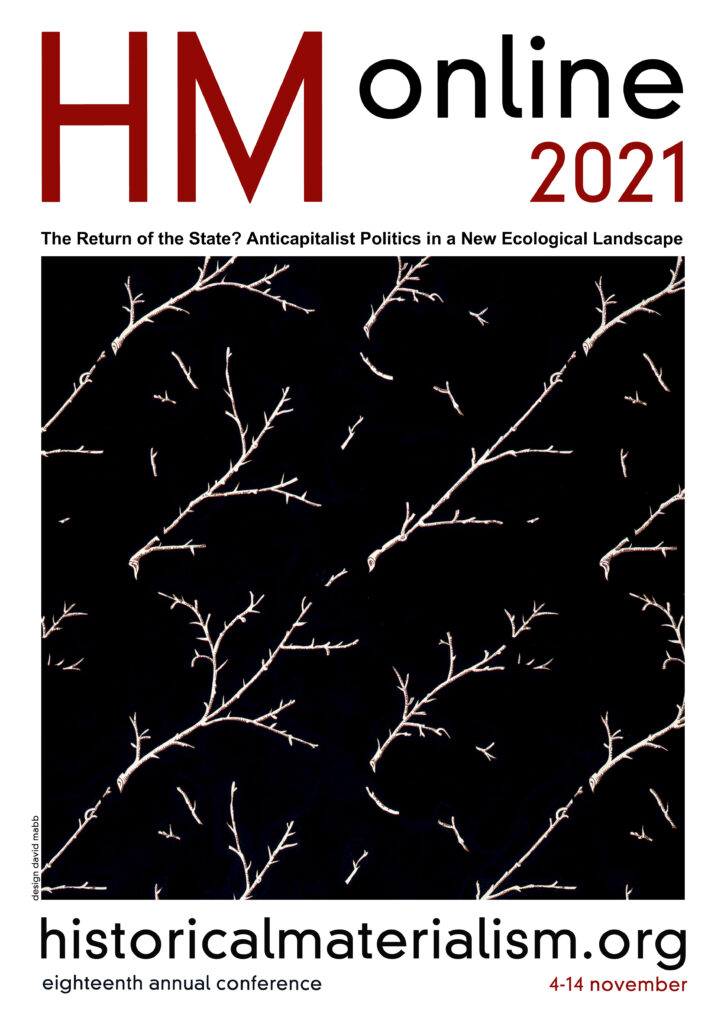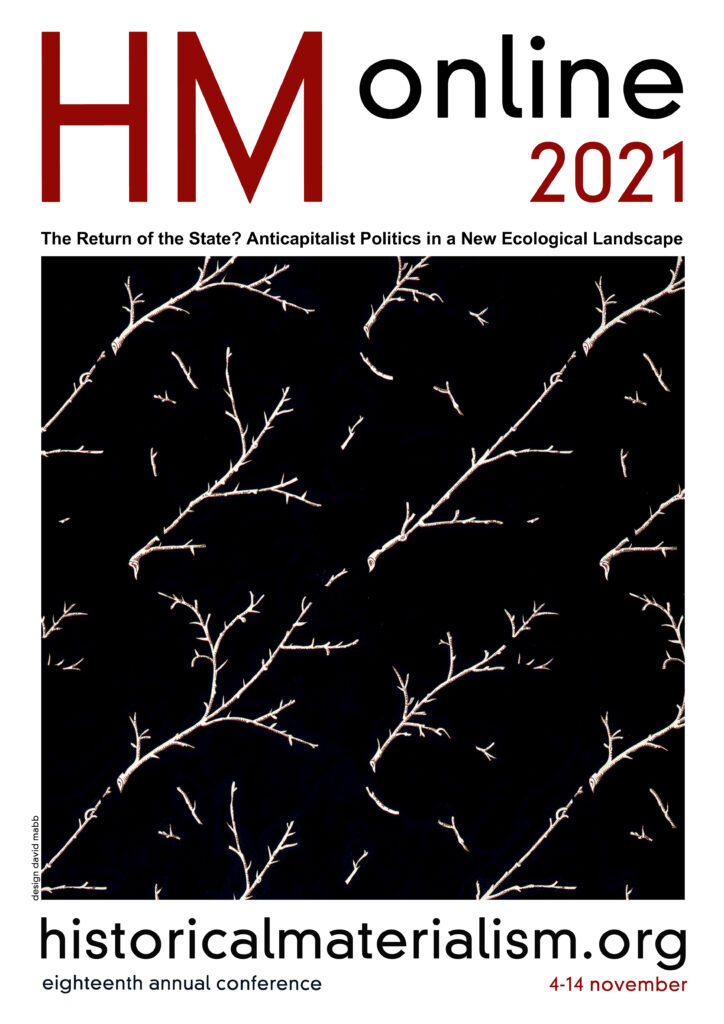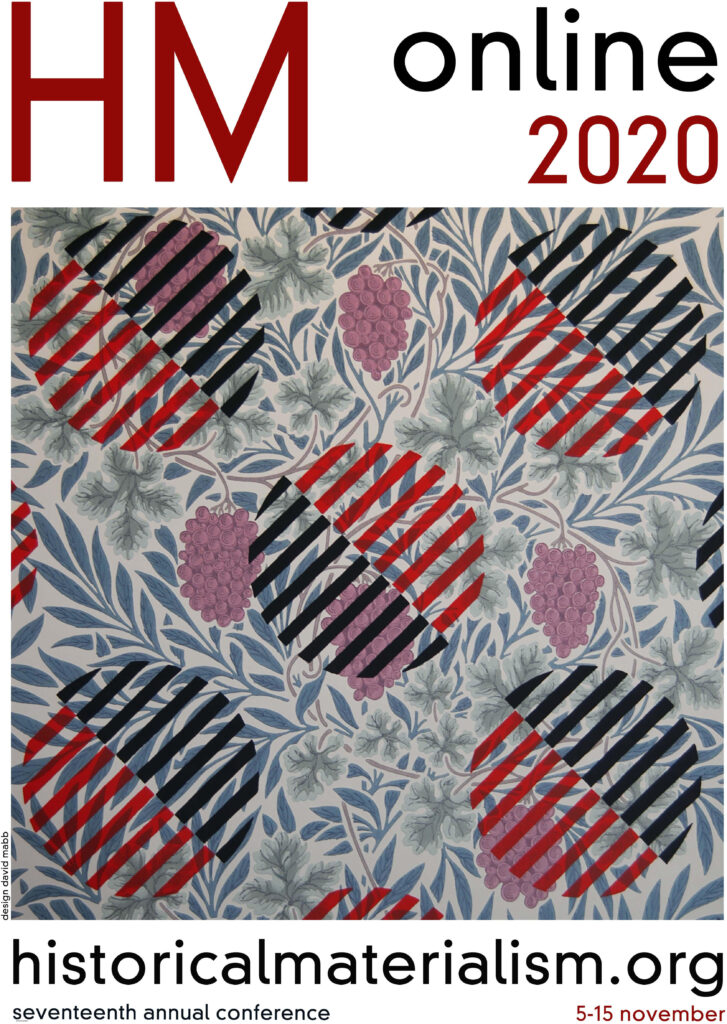Articles
Racism and Capitalism
A Contingent or Necessary Relationship
Anti-racist debate today remains polarized between “class reductionist” (any attempt to address racial disparities reinforces capitalist class relations) and “liberal identity” (disparities in racial representation can be resolved without questioning class inequality) politics. Both positions share a common perspective—racial oppression and class exploitation are the products of distinctive social dynamics whose relationship is historically contingent. This essay is an initial step toward astructurally necessary relationship between capitalism and racial oppression. The essay draws upon on Anwar Shaikh and Howard Botwinick’s elaboration of Marx’s political economy; and Ellen Wood’s analysis of the specificity of capitalism imperialism.
Beyond the Binary of Race and Class
A Marxist Humanist Perspective
The emergence of a new generation of antiracist activists and theorists seeking to advance an anticapitalist agenda creates a new vantage point of reexamining how racism relates to the logic of capital. This essay explores sources in the work of Marx, twentieth century Marxists, and Frantz Fanon that can provide direction for overcoming the binary of class and race.
Reexamining Race and Capitalism in the Marxist Tradition
This introduction cannot encapsulate the diversity and breadth of Marxist writing about race and racism. Yet it does attempt, at the very least, to give an idea of the seriousness with which Marxists have historically taken these issues. Far from just an ‘epiphenomenon’, many in the Marxist tradition have sought to significantly extend historical materialist theory in order to specifically understand race and racism. In some ways, however, the mature neoliberal period saw something of a retreat from these positions: with greater emphasis placed on the category of race as one simply opposed to Marxist analysis.The articles in this special issue need to be understood against this wider context. Eschewing overly binary discussions about the ‘competition’ between ‘race’ and ‘class’, they instead represent more specific interventions – on both the theoretical and historical level – into these questions. Whilst the contributions are of course varied, we can understand them as responding directly to many of the questions we post in this introduction. These interventions are multifaceted and intertwined. And yet, despite their interconnectedness, it was necessary to place these interventions into themes, to provide some structure and coherence to the discussion. Some themes were more bounded than others, but even those that were more narrowly defined were often overlapping and interconnected. It was a delicate balancing act that required careful consideration. Given the sheer size of this special issue, it will be covered over two physical issues. The first will contain the articles under the theme of Race and Capital and Colony, while the second issue will look the areas of Ideology, Chains, and Labour.
Unbounding exploitation
Labour-surplus extraction, value, and struggles beyond the wage
By Alessandra Mezzadri, SOAS
HM Conference Plenary, Sunday November 13th, 2022
First, I would like to thank the HM conference organisers – Demet Dinler in particular- for arranging this panel. Thanks to my fellow panellists for sharing this platform with me – I find their work hugely inspiring. I was asked to organise my intervention here along three questions, which I diligently have.
HM 2021 Online Conference
4TH TO 14TH NOVEMBER 2021 @ONLINE
All Haymarket titles are 40% off for the duration of the HM Conference. Browse paperbacks from the Historical Materialism book series: https://www.haymarketbooks.org/blogs/234- reading-guide-historical- materialism "
Historical Materialism 18th Annual Conference Online 2021 – Call for Papers
The Return of the State? Anticapitalist Politics in a New Ecological Landscape
HM Broadcasts
Current Events
Sunday 28th March
Communist opposition in the USSR – early 1930s: the Verkhne-Uralsk Document
HM Online 2020
The Editorial Board of Historical Materialism: Research in Critical Marxist Theory support conferences across the globe, recognising the importance of coming together and engaging in discussion and debate over questions of theory and politics, and promoting links and the sharing of perspectives and expertise amongst Marxists and the Marxist influenced radical left. Covid 19 has disrupted that as much as it has disrupted other aspects of communication, solidarity and everyday life.
The Long Brazilian Crisis: A Forum
Introduction
Brazil has returned to world headlines. This time because Jair Bolsonaro, a grotesque and until now marginal, far-right politician, won 55.7 percent of the vote in the second round general elections in October 2018. Perhaps most striking about this latest triumph of reaction is that it took place in the world’s fifth largest country by area and population, and sixth largest economy. What is more, Bolsonaro’s ascent comes on the heels of 14 years of rule by the Workers Party (Partido dos Trabalhadores, PT) – one of the most mature and institutionalized social democratic parties of the twenty-first century. With this symposium, Historical materialism historically and theoretically situates the current Brazilian conjuncture and contributes to the debate within the left on the international impact of these events, inviting further reflection on the moment of danger opening up before us.
A Debate on Value Theory
On the recent (2018) debate over value theory between David Harvey and his critics
This article was originally published at https://readingsofcapital.com/[1]










